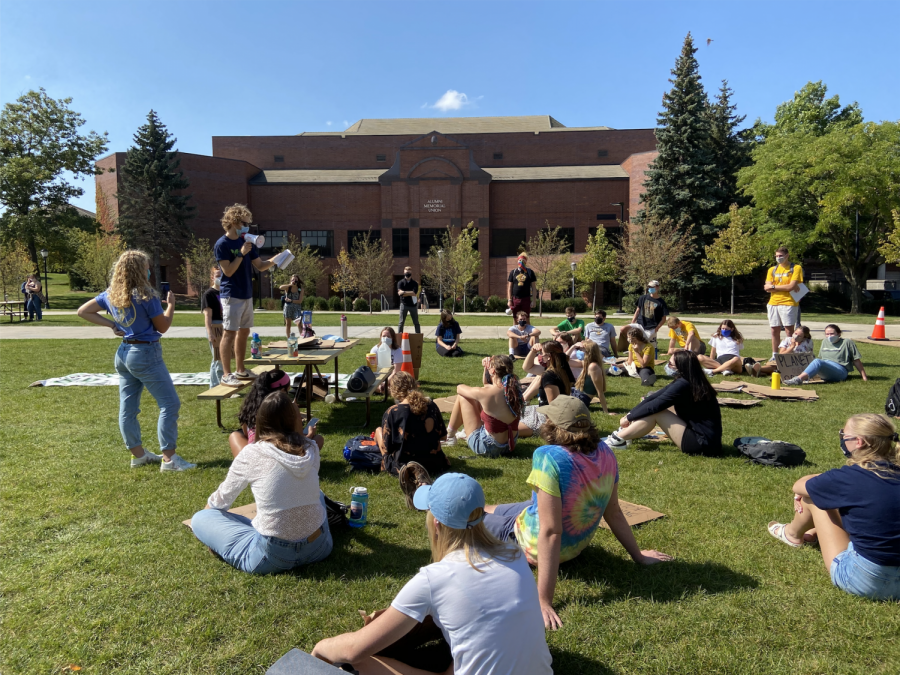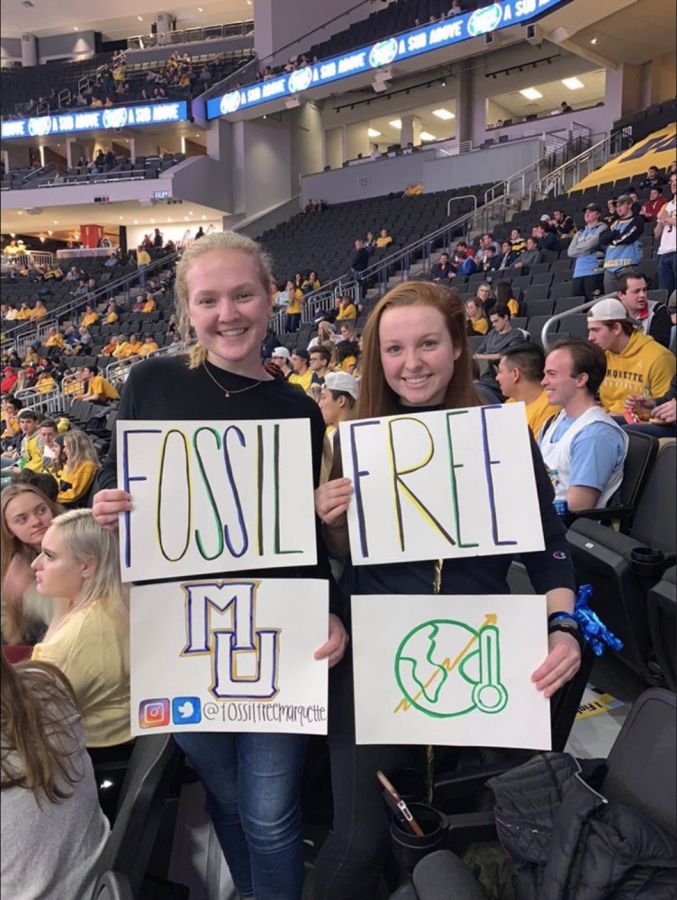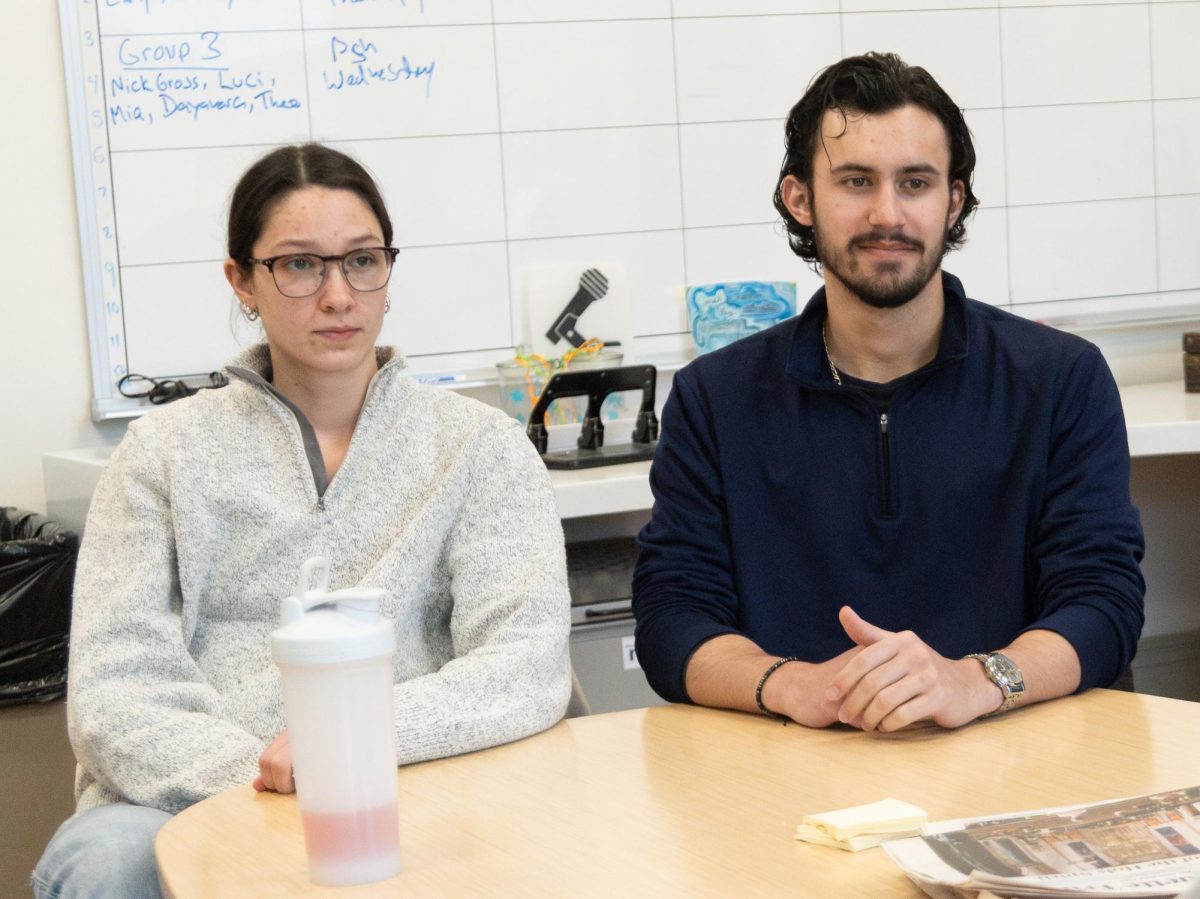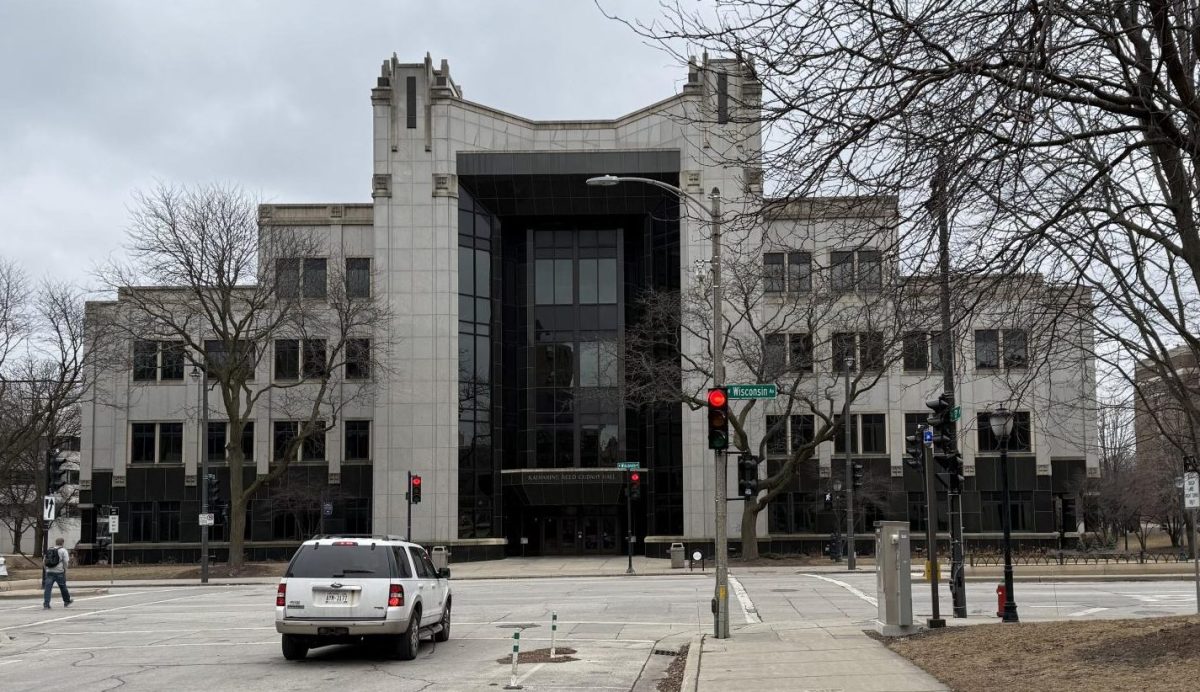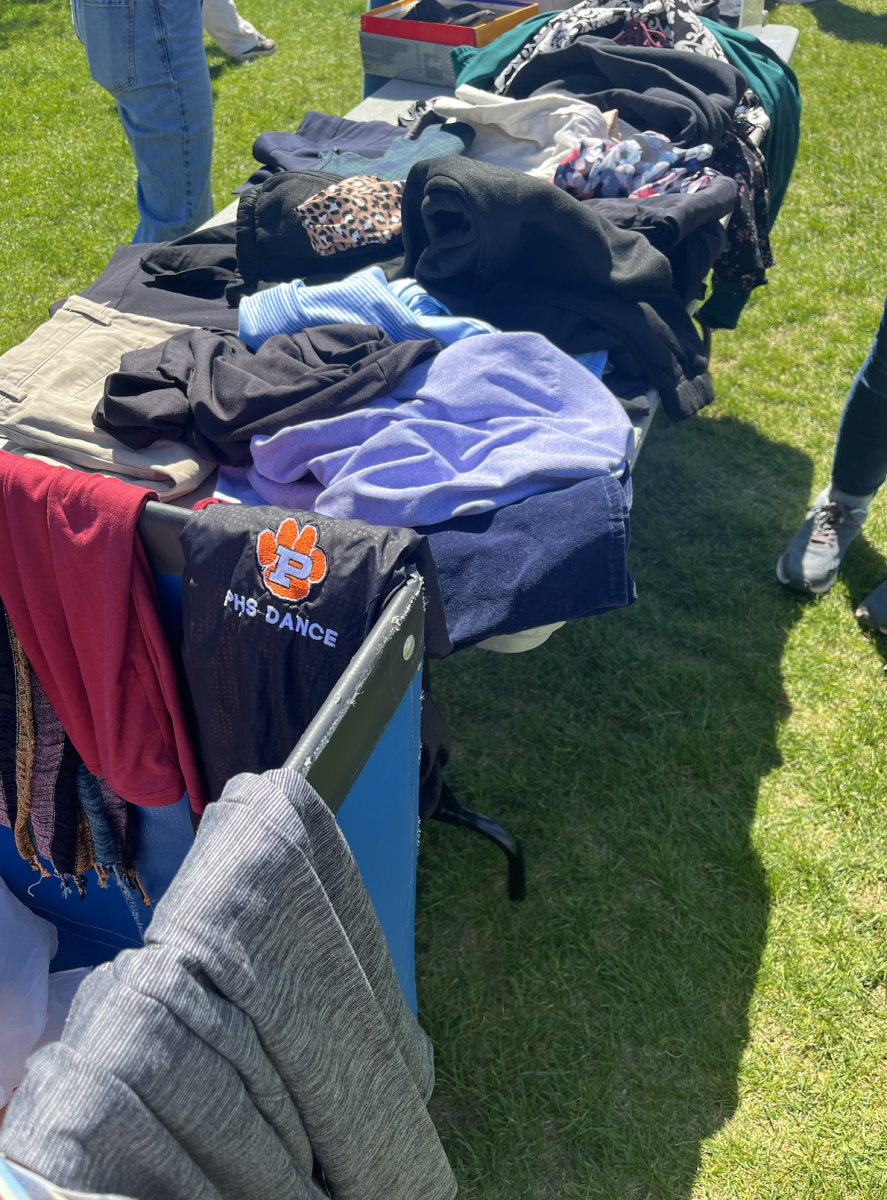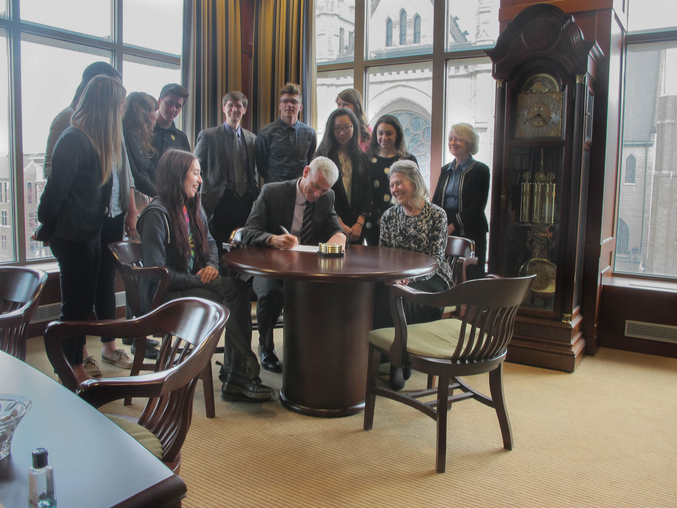Fossil Free Marquette presented at Marquette University Student Government’s weekly senate meeting March 8.
The organization presented the goal of getting MUSG to have a student referendum on the March ballot, getting a proposal/recommendation to administration and continuing to encourage conversations around sustainability.
MUSG elections will be on March 26, and Fossil Free Marquette wants a student referendum to encourage Marquette to divestiture funds from fossil fuel companies. A student referendum is a public question that would gauge student support on whether or not they support Fossil Free Marquette’s movement to have Marquette divest from fossil fuel companies.
“Our biggest goal is to educate the student body and bring awareness to this issue and encourage others to use their voices to stand up to the university about their unethical investments,” Maddie Kuehn, co-leader of Fossil Free Marquette and sophomore in the College of Arts & Sciences, said.
Marquette has a nearly $700 million endowment fund, part of which is invested in fossil fuel companies. Fossil Free Marquette wants the university to divest, or sell off their investments in fossil fuel companies.
“Our campaign is specifically focused on pushing for fossil fuel divestiture, we also advocate for broader environmental action, both on local and global scales,” Joseph Miscimarra, co-founder of Fossil Free Marquette and senior in College of Arts & Sciences, said.
If Marquette were to fully divest from fossil fuel companies it would be following other Jesuit institutions such as Seattle University, Georgetown University and Creighton University. Fossil Free Marquette put a large emphasis on Creighton as it is a similar institution to Marquette in size and location.
“Creighton’s student government was able to conduct an undergraduate referendum on this issue in order to amplify students’ voices and concerns; if MUSG were able to do the same, we’re fully confident that students would overwhelmingly vote in line with our campaign, indicating that they don’t want their tuition fees to support an industry jeopardizing our future,” Miscimarra said.
Creighton committed to divesting from fossil fuel companies on Dec.31 2020, after pressure from the student body that started with a student referendum.
If the referendum gets on the ballot at the end of the month it would be a way to show student support for the divestiture if it passes. However, all final decisions about the endowment fund must be made by University President Michael Lovell and the Board of Trustees.
“It is crucial that the university listens to the student body and the concerns we have for our communities and our futures,” Kuehn said.
Fossil Free Marquette said that the investment in fossil fuels is against the university’s values. The organization cited Marquette’s mission statement which says “ … all this we pursue for the greater glory of God and the common benefit of the human community.” Their argument was that by supporting an industry that takes part in climate change, Marquette isn’t living up to those ideals.
“Climate change hurts the most vulnerable communities,” Bruce Deal, sophomore in the College of Business Administration said. Supporting fossil fuel industries doesn’t align with Marquette’s mission,” Deal said.
Climate change can cause extreme weather events. In these situations vulnerable populations such as children, the elderly and people with disabilities can be especially affected by the climate change.
Fossil Free Marquette also brought up Lovell’s 2015 signing of the St. Francis pledge. Part of that pledge states that Marquette will “ … act to change our choices and behaviors to reduce the way we contribute to climate change.” The pledge details Marquette’s commitment to sustainability and environmental justice. However, Fossil Free Marquette believes that Marquette isn’t staying true to the pledge.
“In order for Marquette to follow this pledge, they must be held accountable for their investments in corporations that put the most risk onto communities that are most vulnerable to the adverse effects of climate change,” Kuehn said.
In addition to the student referendum, Fossil Free Marquette asked MUSG for assistance in drafting a resolution or recommendation to the administration about its investments in fossil fuels.
The resolution would encourage the university to “be transparent about fossil fuel investments, update investment policy in line with Jesuit value of ecological justice, commit to full divestiture (with plan to fully divest from fossil fuels within five years) and utilize shareholder engagement to promote decarbonization until fully divested.”
At this time Fossil Free Marquette has a petition to Lovell, the Board of Trustees and the endowment office encouraging them to divest from fossil fuels. It currently has just under 250 signatures.
This story was written by Megan Woolard. She can be reached at megan.woolard@marquette.edu




